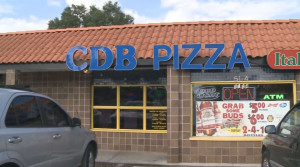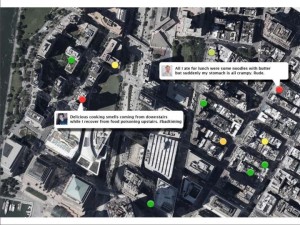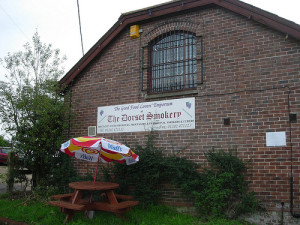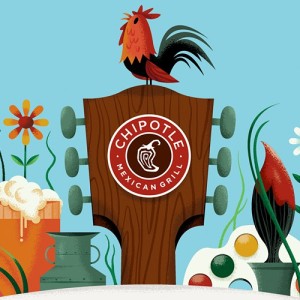Before we moved to Brisbane, I was urging Amy to get a professoring job at New College in Sarasota or the University of South Florida in Tampa.
 We even met a dean from New College at the local megalomart as those remaining behind were prepping for a hurricane.
We even met a dean from New College at the local megalomart as those remaining behind were prepping for a hurricane.
Unfortunately, French just isn’t a big deal down there.
So we ended up in Brisbane and turns out they are equidistant from the equator as is Brisbane, so not a bad deal.
And they have food safety issues, just like everywhere else.
State health inspectors have uncovered more health code violations inside a legendary restaurant popular among University of South Florida students. CDB’s Pizza Italian Restaurant is located on Fowler Avenue just east of campus.
For more than 50 years CDB’s has been serving up people in the North Tampa area surrounding USF.
“Yeah, I hear a lot of people go there,” said former customer Rick Krause. “It seems pretty packed.”
But many customers may have no idea about this location’s history of health code violations.
“I could shoot you because you make my customers go away,” said CDB’s owner Jackie Xiu when we first met him back in 2013 when we arrived to ask about the restaurant’s 50 violations.
Back then, the restaurant expanded to also serve sushi and was cited for advertising “white tuna” on the menu. State inspectors discovered his restaurant was actually serving a much cheaper fish called escolar banned in some countries. While legal here in the U.S., the FDA warns it’s known to make some people sick with food poisoning like symptoms.
“Every sushi restaurant put white tuna on the menu,” insisted Xiu. “They already know what white tuna … that’s just a name.”
10Investigates WTSP has now learned state health inspectors were back again this month shutting down CDB’s with a whole new set of problems.
The violations included live roaches near the pizza oven and by a food cart with raw sewage backing up behind the sushi bar. The inspector reported employees were walking through the mess while preparing food.
“The owner is not here right now. You can come back when he’s here,” said a manager who did not provide his name. “Maybe tomorrow or the next day. I’ve got a restaurant full of people right now we can’t do it.”
Since management was unable to comment on what was done to get the problems corrected, 10Investigates instead discussed the inspection report with customers.
“If I didn’t know any better I would have walked in there and sat down and ate the food,” said Juan Evans just steps before walking inside.
It’s not the first time health inspectors have found issues this year. In January the inspector found more roaches right around the food prep table, next to the clean dish rack and crawling across a clean food container.
“That’s ridiculous,” said Evans. “Something like this you wouldn’t even think it would be a warning. This would have been enough for them to close down for good.”
It seems to be a pattern of problems. We visited another restaurant owned by Jackie Xiu in January of last year. Kobe Italian on Ulmerton Road in Largo was shut down back then also with live roaches and dangerous temperature violations.
More recently in December, that same location also written up for misrepresenting white tuna on the menu. The inspector documenting escolar in the freezer and at the sushi bar.
Brisbane, Tampa, wherever, food safety is faith-based.
And that has to change.











